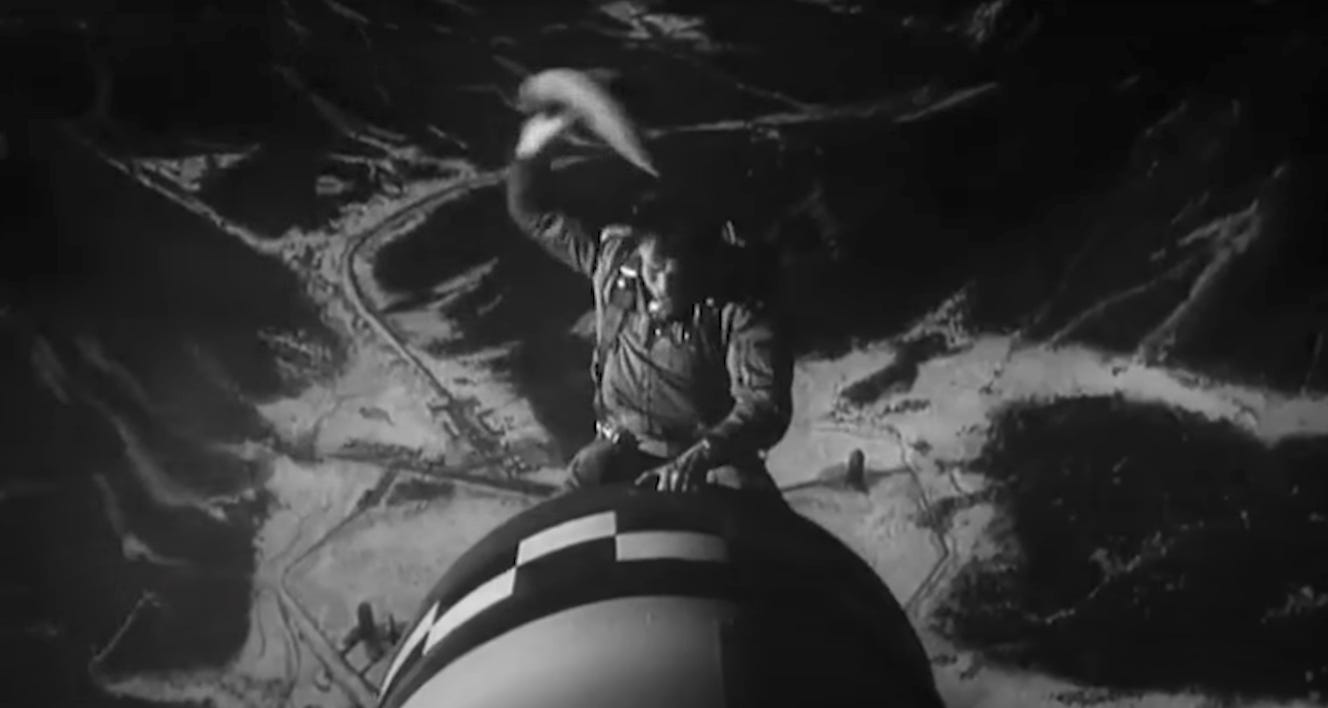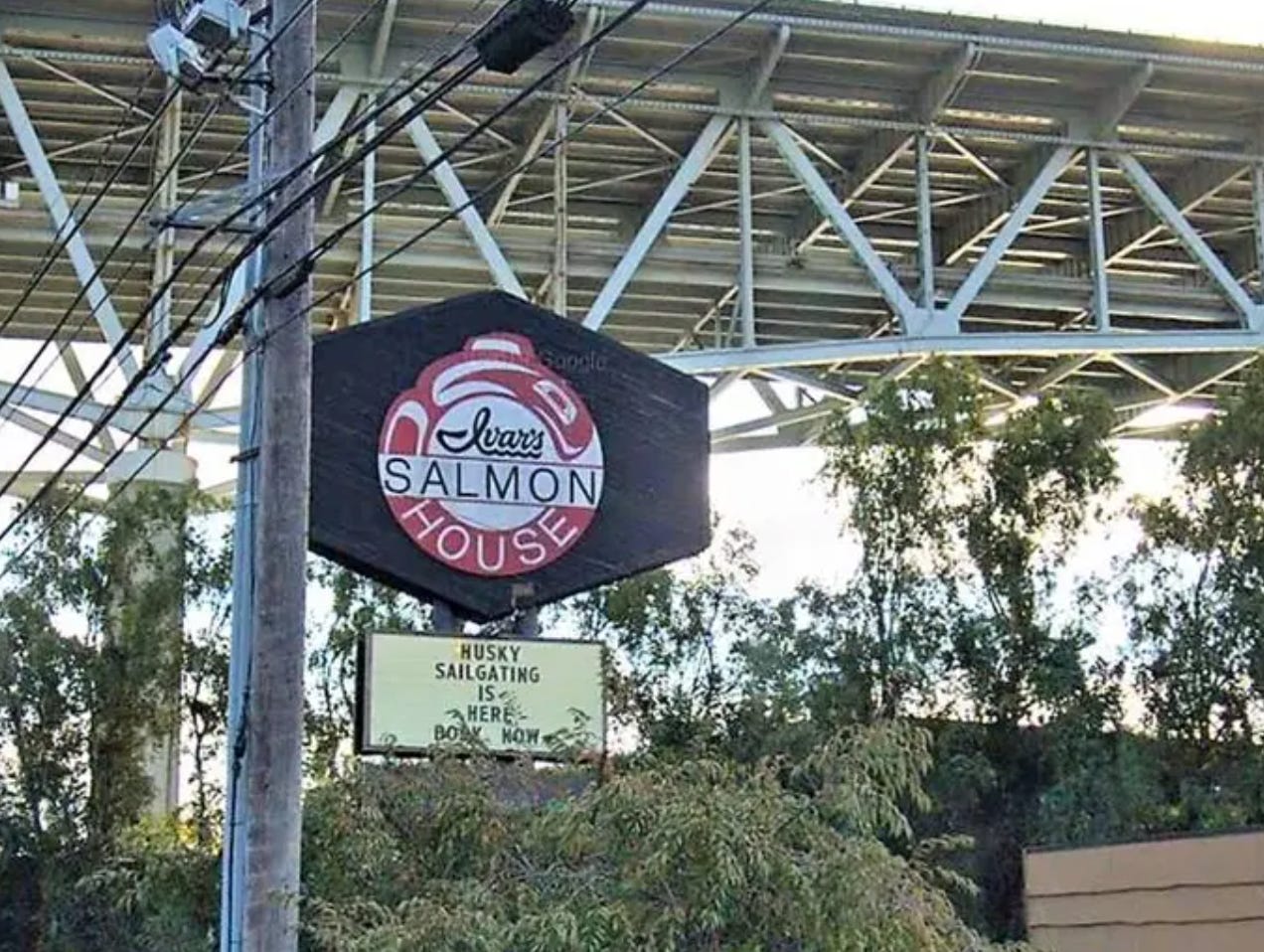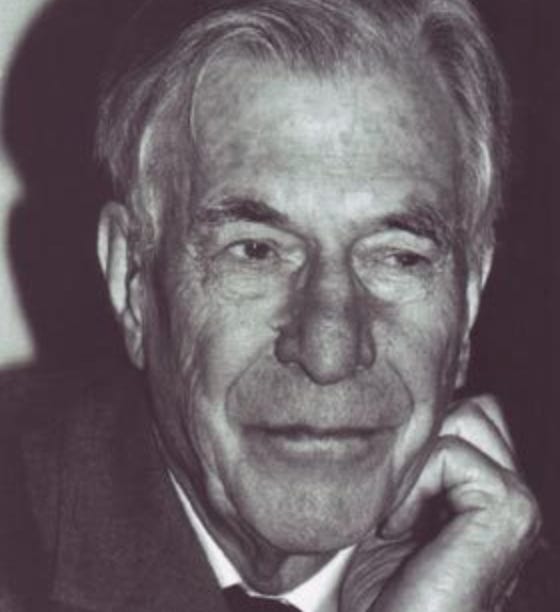HOW I LEARNED TO START WORRYING AND HATE THE BOMB and why you should, too.
HOW I LEARNED TO START WORRYING AND HATE THE BOMB
and why you should, too.
On a chilly Seattle night, sometime in the early 1980s, I was huddled in the front seat of a rented Volvo with John Kenneth Galbraith, one of the most important intellectuals of his time. We were parked under a bridge near Ivar’s legendary Salmon House — me the eager and ambitious young reporter and Galbraith, an important Harvard economist who had counselled President John F. Kennedy. Patrician, elegant Galbraith was gracious when confronted with the makeshift studio I’d coaxed him into, away from the restaurant itself which was too noisy for a clean recording.
At the time of our meeting, Galbraith was travelling to events in support of anti-nukes activism being propelled by doctors around the world. Spearheading the movement was Dr. Howard Hiatt — the storied former head of Harvard’s School of Public health back when PH actually meant something. Hiatt and Victor S. Weisskopf,one of the fathers of the Nagasaki and Hiroshima bombs, had both become outspoken critics of nuclear weapons.
Dr. Weisskopf was one of the first physicists to warn of the possible dangers of atomic research. In 1939, he and Leo Szilard, another atomic physicist, recommended that physicists keep secret their findings on nuclear fission instead of publishing them in academic journals, out of fear that the information could help Nazi scientists build atomic weapons.
In 1943, Dr. Weisskopf joined the Manhattan Project as associate head of the theory division. In a lecture at the Massachusetts Institute of Technology in 1991, he recounted the rationale for dropping the bomb on Hiroshima in August 1945, that the destruction needed to have a strong psychological effect on Japan.
The second bomb, dropped on Nagasaki three days later, was more troubling to him.
''The second bomb I don't hesitate to call a crime,'' Dr. Weisskopf told the audience at M.I.T. He also called the cold war ''a collective mental disease of mankind.''
The pair even met with President Reagan to layout in full, the devastation of a nuclear exchange.
These ideas would fuel the Oscar-winning, anti-nuke polemic If You Love This Planet in which Helen Caldicott, an Australian pediatrician at the film’s center, gives a spine-chilling and traumatic description of what actually happens when nukes fly.
Caldicott and other doctors have described injuries and burns so gruesome that the living will envy the dead. I vividly recall transcribing the phrase — their skin was hanging off in great glove-like shreds. There was more. It was worse and there were photographs which I will spare you.
Galbraith, a man with a formidable intellect said something to me that night that I keep returning to now that Ukraine has become the epicentre of reckless nuclear escalation. You don’t make the world safer for yourself by making it more dangerous for your neighbour. Galbraith said it in the spirit of a possible Soviet/American disarmament strategy and now watching the Biden administration do everything in its power to inflame the Ukraine/Russia War, I am reminded how smart was my interview subject that night.
It feels like legacy media and western leaders are sleepwalking us into an historic calamity. The Evil/Putin and Heroic/Zelensky media story is demonstrably false and wearing thin as the Ukraine president puffs-up and postures like a neighbourhood gangster-wannabe looking for street cred. Putin is Putin, cranky, testosterone-driven and unpredictable but he has, until recently been relatively restrained in his campaign to absorb Russian-speaking Donbas despite what the propaganda journos are reporting. I suspect that is ending.
Zelensky has gone from a noble-seeming character and innocent victim of foreign aggression to a swaggering bully demanding obedience from media and massive amounts of weapons and cash from the West to the detriment of its own citizens. As many Americans struggle with rising inflation and a recession — unable to carry on their normal lives — Zelensky is asking for a Ukraine-budgetary top-off from his benefactors in DC. The Ukaine/US relationship is becoming somewhat tawdry and suggests that Zelensky now feels he has the power — even if it is the kind that stems from a sugar-baby warning Daddy she will tell the wife unless he shows up with the latest Birkin. I wonder what Biden family secrets he is sitting on.
Zelensky has blown up the Crimea bridge and brags about it — two weeks after America or a proxy (likely) blew up the Nord Stream pipeline and then sort of bragged about it. It was just two weeks ago that Zelensky was demanding a preemptive strike by Nato on Russian nuclear missile sites. There he was, all dressed up like a pretend soldier demanding World War III.

The week before, with another theatrical flourish, Zelensky signed an expedited NATO application document — a move designed to inflame Putin.
On last week’s podcast, Colonel Douglas Macgregor discussed the motives behind the West’s bellicose response to peace talks, what the Nord Stream blow-up might mean and why globalist western governments want Putin out. Macgregor includes in that group, Canada’s Prime Minister who is actively promoting America’s Ukraine talking points.
Trish Wood
Is there thinking amongst the smart people like you that if America did do this, [Nord Stream] that part of the logic behind it would be to purposely escalate the tensions, because they're interested in escalating the fight.
Col. Douglas Macgregor
The problem with this is that technically, if the Russians decided to do so they could regard this damage to their pipeline as an act of war, right. And if they trace it back to the United States, and that would justify war with the United States, but Mr. Putin, at least as far as I can tell, over the last 20 plus years has done everything in his power to avoid that. And of course, while Mr. Trump was in office, there was a lot of cooperation on the military side and intelligence side between Russia and the United States. Russia has cooperated with us in Afghanistan.
They cooperated with us in Syria. On numerous occasions, they provided us with extremely valuable intelligence on the Islamist threat and terrorist networks -worked with us on that score. And Trump made it abundantly clear that he did not want to treat Russia as an enemy, which was very unpopular in Washington. Not necessarily with the American people, I don't think most Americans really understand the complexity of this whole problem. But large numbers of Americans, if you ask them would probably readily tell you that they have no interest in war with Russia.
So the people that are most interested in war with Russia all seem to be concentrated in Washington, DC, perhaps selling the financial markets in New York City. And obviously, since many of the people that that are dominant in the financial markets also own the media, and are also controlling much of Congress, because of their campaign donations, and so forth, have an interest in this sort of thing. But once you move out of those circles, there's really no appetite in the United States for war any more than I suspect there is in Canada. And clearly, Mr. Trudeau in Canada has been vociferous in his attacks on the Russians, which I think are ridiculous, but that's my own opinion.
Tulsi Gabbard has taken a principled stand against the madness and resigned from the Democratic Party — no real surprise, it was time, but also a formal signal exposing the uni-party that Washington has become.

Meanwhile in Canada, the new leader of the Conservative Party flamed out posting a tweet that went over like a lead balloon with followers who hoped he was the antidote to Prime Minister Trudeau’s globalist agenda.

Embarrassing. Clearly he needs new foreign policy advisors. Were he still alive, I would suggest Stephen Cohen who was Professor Emeritus of Russian Studies and Politics at New York University and Princeton. In November, 2019 — just before he died, Cohen was asking prescient questions about Washington’s Ukraine fetish. And why Putin is so paranoid. Interesting — he also predicted Gabbard’s trajectory.
The short but essential answer is Washington’s decision, taken by President Bill Clinton in the 1990s, to expand NATO eastward from Germany and eventually to Ukraine itself. Ever since, both Democrats and Republicans have insisted that Ukraine is a “vital US national interest.” Those of us who opposed that folly warned it would lead to dangerous conflicts with Moscow, conceivably even war. Imagine Washington’s reaction, we pointed out, if Russian military bases began to appear on Canada’s or Mexico’s borders with America. We were not wrong: An estimated 13,000 souls have already died in the Ukrainian-Russian war in the Donbass and some 2 million people have been displaced.
Things are likely to get worse. Democrats are sharply criticizing Trump for withholding large-scale military aid to Kiev (even though President Obama, despite strong pressure, wisely did so). Ukraine’s recently elected President Volodymyr Zelensky, having been drawn into the Washington scandal, is no longer as free to negotiate peace with Russian leader Vladimir Putin as he hoped and promised during his campaign. And candidates for the 2020 US Democratic presidential nomination, with the exception of Tulsi Gabbard, are likely to compete for the role of Kiev’s biggest military booster. Here, as generally in US-Russian relations, Democrats are becoming a war party.
Meanwhile, as I have reported before, Russian leader Vladimir Putin continues to be accused by hard-liners in Moscow of passivity in the face of “American aggression in Ukraine.” Is it irony or tragedy that the often-maligned Trump and Putin may stand between us and something much worse—between a fragile Cold War peace and the war parties in their respective countries?
I wonder what Professor Cohen’s take on President Joe Biden’s war would be, especially given that Biden, the vice president, was notorious within the Obama administration for botching the Ukraine file while his son, Hunter, and likely the Biden family, profited from it.
This week, with Scott Horton, we went further and examined America’s history of dangerous foreign policy mistakes that have brought us to this moment of peril.
World War III, a potential catastrophe should be the current focus of public health but isn’t because a highly survivable virus serves better the left-leaning, social justice politics of that branch of medicine. Anti-nukes used to be a plank of the left but no more — not as long as Biden panders to the progressive wing of his party. They focus on washrooms for trans, white guilt and climate change. To them, the real possibility of a nuclear war is a hoax perpetrated by Tucker Carlson.
In the meantime, public health experts still publish on nukes — but clearly the end of the world has been pushed to the back burner for the C-19 fiasco. This from the Journal of Public Health in 2020 —a report that got no attention.
Background: According to the Stockholm International Peace Research Institute, the year 2018 saw a continuing 'drift into global instability' in which 'both the USA and Russia are on a path of strategic nuclear (weapons) renewal' with 3750 nuclear bombs globally deployed 'ready to fire'. Treaties are being abrogated with increasingly aggressive language exchanged, and discredited tactics such as 'limited use' revived. These developments risk an amplifying cascade of nuclear weapon fire, whether started by intent, miscalculation or unintentionally.
Results: A nuclear war would cause immediate and massive loss of human life, unprecedented damage to societal infrastructures and climatic disruption resulting in a 'nuclear winter' or 'nuclear famine'.
Conclusions: The systems defending national territory against nuclear warhead missiles do not guarantee protection, and neither would hastily erected domestic shelters. Any post-survival world would be utterly different and severely challenging. The only effective preventative measures require nuclear disarmament through treaty.
Keywords: disaster and emergency planning; nuclear weapons; prevention; public health.
© The Author(s) 2019. Published by Oxford University Press on behalf of Faculty of Public Health.
Even General Mike Mullen, the former head of the joint chiefs recently warned that the temperature of the discussions around Ukraine/Russia must be ratcheted down — because of the threat of nuclear war. But blustering fools like Piers Morgan, bellow that Putin is Hitler and any peace agreement the equivalent of pandering to a tyrant. Link to video here.
I guess he and the rest of the war-hawks will ride those suckers right down to their targets — just like Major Kong in Dr. Strangelove. Meanwhile decades of anti-nuke realists will be written-off as Putin enablers and tyrant-appeasers. And there won’t be anyone left to make the arguments. He’s been gone since 2006, but I wonder what my smart friend Mr. Galbraith would say.
Stay Critical —





Comments
Post a Comment